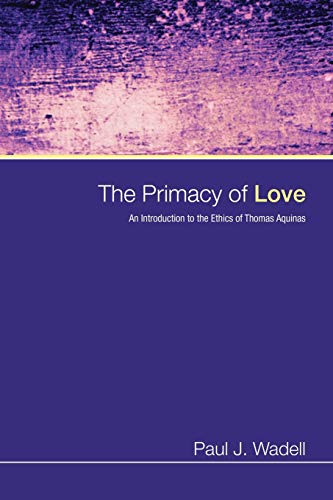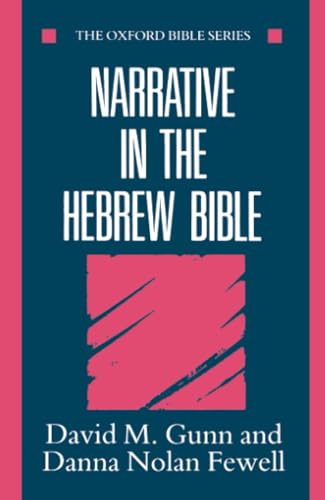Volume 19 - Issue 3
READERS’ RESPONSES
By Rob CookResponse to Robert Cook
I welcome dialogue with more conservative fellow Christians and am glad of this opportunity to respond briefly to Dr Robert Cook’s article, ‘Postmodernism, pluralism and John Hick’ (Themelios 19.1 October 1993).
According to Dr Cook I am a postmodernist. This is not only news to me but will be a surprise to the various postmodernist writers who have attacked my proposals about religious pluralism as a typically modern meta-narrative which, in collusion with international capitalism, squashes human differences and particularities. (See, e.g., Gerard Loughlin, ‘Prefacing Pluralism: John Hick and the Mastery of Religion’, and Kenneth Surin, ‘A Certain “Politics of Speech”: “Religious Pluralism” in the Age of the McDonald’s Hamburger’, both in Modern Theology, October 1990, and Surin, ‘Towards a “Materialist” Critique of “Religious Pluralism”’, The Thomist, October 1989). I have replied to these elsewhere. Here I offer some thoughts on Dr Cook’s article, without further comment on his post-modernist faux-pas.
His initial summary of the pluralistic hypothesis is basically correct. But his 11 critical points contain a number of misunderstandings of the position that he intends to criticise. It is only possible in the space available to pick up a few of these.
In the book (An Interpretation of Religion) which Dr Cook is discussing I do not suggest that the religions have a common core; on the contrary, in my view the term ‘religion’ refers to a network of Wittgensteinian ‘family resemblances’ rather than to an essence. Within this wide network the book is specifically limited to the traditions that affirm a transcendent reality which is the ground of human salvific transformation. These are the great post-axial faiths of (in historical order) Hinduism, Judaism, Buddhism, Christianity and Islam. I do not however, as Dr Cook suggests, identify ‘the essence of post-axial religions as the quest for self-transcendence beyond this world’. The limitlessly better possibility that they proclaim, consisting in a transformation from self-centredness to a new centering in the transcendent reality, is available now, within this world—though they each also affirm a continuation and completion beyond this life.
These traditions do indeed (as I discuss in detail) embody different conceptions of the ultimately real, and accordingly different forms of experience of that reality, and likewise different responsive paths of life. They constitute different religious totalities with different theologies and philosophies, different spiritual practices, different scriptures and historical exemplars and cultural expressions. But so far from being the case that, as Dr Cook asserts, ‘One has only to meet advanced practitioners of the different faiths to recognize that they are just not going in the same direction’, I believe that one has only to meet spiritually outstanding individuals of the different world religions to recognize that within the context of their different belief-systems they are undergoing essentially the same salvific transformation from self-centredness to Reality-centredness. The intellectual structures in their minds remain very different, but the unselfcentred love, compassion, truthfulness, and moral goodness that is the fruit of this transformation is strikingly similar across the confessional boundaries. William Penn was, I believe, right when he wrote that ‘The humble, meek, merciful, just, pious and devout souls are everywhere of one religion; and when death has taken off the mask, they will know one another, though the divers liveries they wear here makes them strangers.’
This is relevant to another misunderstanding. I do not argue, as Dr Cook suggests, that because the religions severally refer to an ineffable transcendent reality, they must therefore be referring to the same reality. Such an argument would, as he says, be fallacious. But the reason to think that the different objects of worship and foci of religious meditation (Jahweh, the Holy Trinity, Allah, Vishnu, Shiva, Brahman, the Dharmakaya, etc) are different phenomenal manifestations to humanity of the same ultimate noumenal reality is that the human responses to them produce a recognizably similar transformation. The alternatives to this pluralistic understanding of religion are either polytheism or a claim to the unique superiority of one’s own religion which does not square with the apparently more or less equal salvific fruits of the others.
On another point, the reason to doubt whether mysticism—whether Christian, Jewish, Muslim, Hindu, or Buddhist—leads to a direct and totally unmediated awareness of the Ultimate is that the resulting reports are so different. This suggests that what is being directly experienced, even in unitive mysticism, is a manifestation of the Real to consciousness formed by particular traditions.
Again, it is a misunderstanding to think that the idea of the ineffable ultimate reality is conceptually empty and ‘indistinguishable from nothing’. The Real is that ultimate reality, in itself beyond the reach of our human conceptualities, which is differently conceived, experienced, and responded to in the ways that the history of religions shows. But why postulate such a reality, rather than be satisfied with atheism or with theological non-realism? Because it is rational, subject to various possible ‘defeaters’, to trust religious experience as veridical, and this leads either to the arbitrary claim that all forms of religious experience except one’s own produce false beliefs, or to the pluralistic hypothesis of a transcendent reality which is being differently experienced, because differently conceived, through the ‘lenses’ of the different religious traditions.
I have only been able in the space available to get as far as Dr Cook’s fourth point. Instead of a fuller response I can only invite interested persons to read for themselves my Gifford Lectures, An Interpretation of Religion, or the much shorter The Metaphor of God Incarnate (SCM Press, 1993). They may or may not find the position developed there acceptable, but it will I think at least be evident to them that the religious pluralist position is not to be dismissed as easily as Dr Cook’s article may have led them to suppose.
John Hick
Response to John Hick
Using a table-tennis analogy, a friend of mine who teaches ‘A’ level philosophy of religion repeatedly cautions those students who believe they have written something unanswerable that for every ping there is a pong and Themelios readers, therefore, should not be surprised that John Hick isn’t lost for words in responding to my article! I could reply to him by defending myself point by point and by expressing my dissatisfaction with some of his replies, for example, he still seems to be open to the charge of apophatic vapidity when the only positive content to the notion of the Real that he can provide is that it is beyond understanding, but because of the limited space allotted to me I must be satisfied with making two major points.
Firstly, to the charge that I made a blunder in viewing Hick’s philosophy as having affinities with postmodernism I would say that thinkers who are both seminal and culturally transitional may validly be viewed as sons of the old and fathers of the new. Descartes, for instance, may profitably be interpreted as a late scholastic thinker with his exploitation of Anselm’s theistic proof and his essentially Aristotelian substance ontology, but he was also clearly a seminal Enlightenment philosopher. I was merely suggesting that Hick is postmodernist in so far as he is laid back in tone, pragmatic in approach, and deeply sceptical of meta-narratives which purport to provide total and objective accounts of reality. I am well aware that there are modernist elements in his thought as well, such as his understanding of the Real as the ‘neo-Kantian unknowable numinosity’ that I mentioned in my article.
It is indeed interesting that some postmodernists have accused Hick of setting up his own anti-meta-narrative meta-narrative but this highlights the central dilemma inherent in postmodernism itself which is that its assertion that all truth claims are relative constitutes itself an absolute truth claim. Just as logical positivism was forced to embrace a metaphysical notion (the verification principle) in order to attempt the demolition of metaphysics, so postmodernism becomes a meta-narrative itself as soon as it makes universal pronouncements against meta-narratives. Postmodernist relativism can only be true, therefore, if it is false.
Secondly, on the matter of whether advanced practitioners of the different faiths are going in the same spiritual direction I would like to say that I do not misunderstand Hick’s position as he claims, but I do disagree with him. I am sorry if this is politically incorrect but my own experience is that many are apparently moving along divergent paths. I well remember meeting a Hindu guru who was convinced that he was on his final incarnation, and being struck by the fact that he seemed close to achieving his goal—the total dissolution of personality. In fact, I was so shocked by the experience that I gave up practising transcendental meditation and attended a Christian mission at university where I met David Watson who impressed me as someone with an integrated personality, a sense of humour and an intangible sanctity of life. I became a Christian soon after. Surely, our beliefs must affect the way we work out our piety and it would, therefore, be very surprising to find, for example, a Zen sage like Yüan-wu who is admired for having said, ‘If you are a real man, you may by all means grab the food from a starving man’1 living a life indistinguishable from that of Mother Theresa. Since I cannot agree with Hick on this point, I cannot agree with him on other related issues either, such as his assertion that Jahweh, Allah, Vishnu et al. must all be manifestations of the same ultimate reality because devotion to them produces the same life transformation.
This conviction notwithstanding, I too am drawn to the sentiments of William Penn; shalōm indeed to all men of goodwill (Lk. 2:14). Inclusivists, like myself, are able to agree that people of all cultures and faiths may encounter God and be transformed by him but we would want to add that this would often be in spite of, rather than because of their religion and we would also want to affirm both that the Christian salvific path is normative and that ultimately it is Jesus Christ who effects holiness in people.
The disagreement between inclusivists and pluralists like John Hick is no small matter. Momentous issues like the incarnation, the atonement and Christian mission are in the balance. Like Hick, I am happy to submit my case to the interested reader with an invitation to read my article alongside Hick’s important and thought-provoking book. An Interpretation of Religion.
Rob Cook
1 A. Watts, The Way of Zen (London: Penguin [Arkana]; 1990), p. 167.
Rob Cook
Redcliffe College






